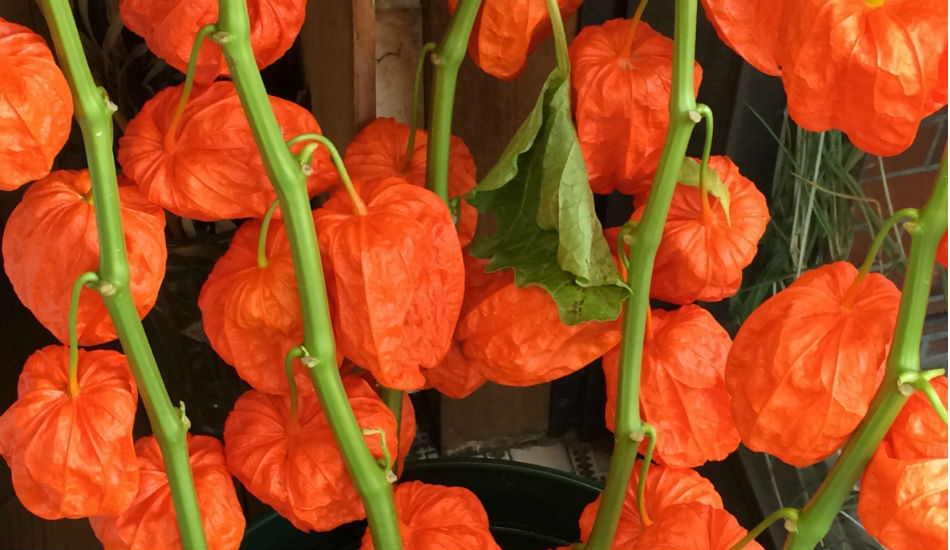Fukagawa Obon Tradition at Florist Otsuka
Published: July 21, 2017
While most of Japan celebrates the Obon festival in August, it’s traditionally held a month earlier in Tokyo. On July 13th people visit their family graves, clean and decorate them with fresh flowers, then return home accompanied by the spirits of their ancestors. The preceding day, July 12th, is for preparation which includes decorating the butsudan, a large wooden Buddhist altar found in many homes.

Those decorations involve a variety of plants and grasses and Florist Otsuka, located next to Morishita Station in Koto-ku, has been providing them to local residents for many years now. Arriving at the shop on a fiercely hot and humid mid-morning, one is surprised at the long line of customers snaking along the pavement, the frenzy of activity inside the shop, and the staff wrapping and arranging bundles on a table under an awning.
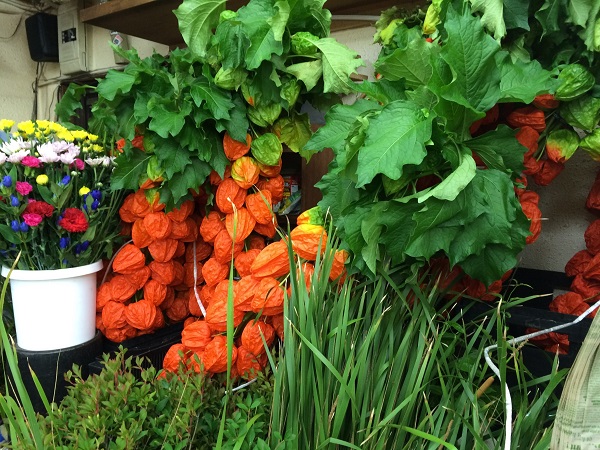
“This is our busiest day of the year,” manages an assistant as she bustles past with armfuls of brilliant orange hozuki, the plant whose lantern-shaped fruit coverings are an integral part of the decorations, symbolically lighting the way back to earth for the souls of the departed.
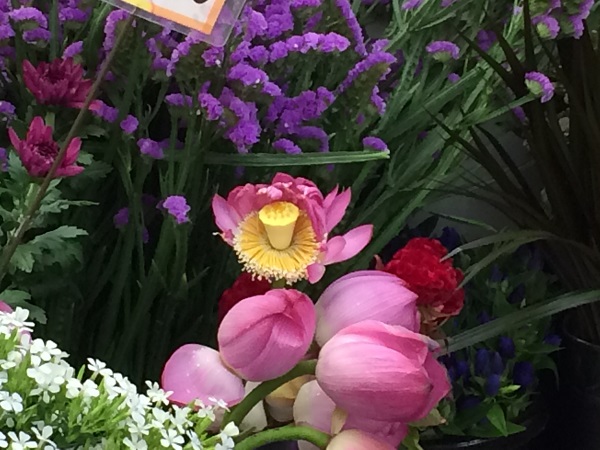
While each region of Japan has its own customs and variations, Tokyo and the Fukagawa area in particular have a long history of using brilliantly coloured flowers during Obon. Otsuka Florist is continuing that long, local tradition.
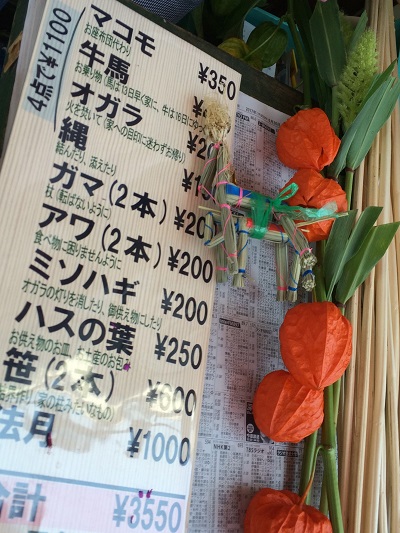
The shop sells a selection of the main items needed to decorate the household altar together with instructions on how to follow the correct procedure.

The altar itself is decorated with bulrushes (gama), foxtail millet (awa), purple loosestrife (misohagi), lotus leaves (hasu no ha), bamboo grass (sasa) and the vivid hozuki.
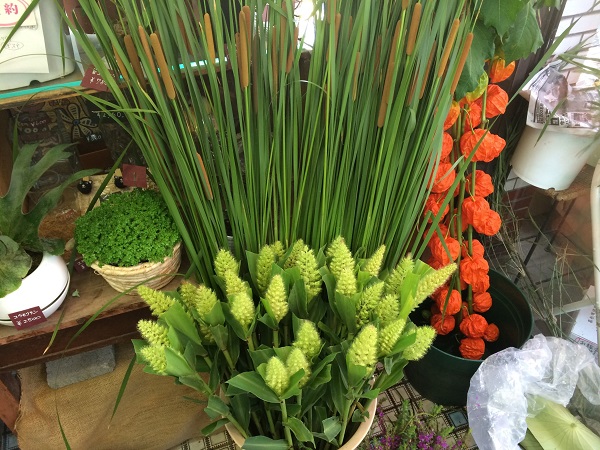
Hemp reeds (ogara) are burned in a special dish (hooroku) to guide the souls of the ancestors to the house and then again to mark their way back to the afterlife on the 16th, the final day of Obon.
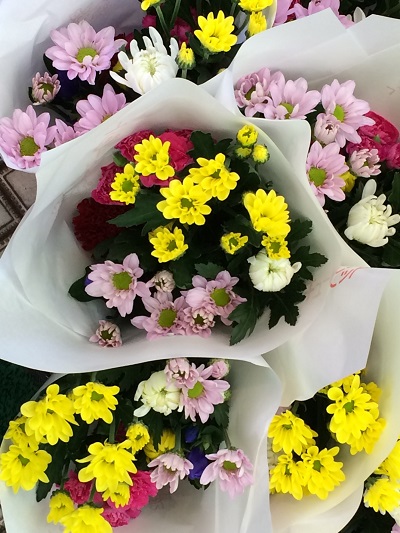
The shop also sells bunches of flowers to decorate the family grave. There are no hard and fast rules, except that flowers or plants with thorns are not used; instead chrysanthemums, carnations, zinnias, stocks and snapdragons are popular. The families’ own personal favourites are often used, as well as summer blooms like sunflowers, marigolds, gentians, gladioli and various cockscombs.
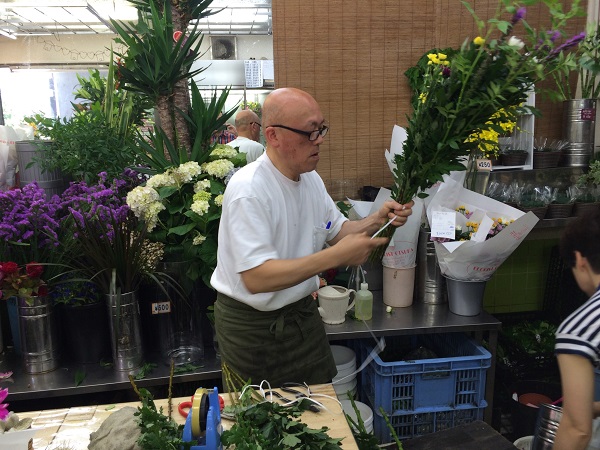
The furious activity in the shop ebbs briefly, but then another batch of customers arrives and orders are called out from the front to the back. Mr. Otsuka, the proprietor, barely has time to catch his breath before his hands are a blur of movement again, gauging, cutting and slicing in smooth practiced motion.
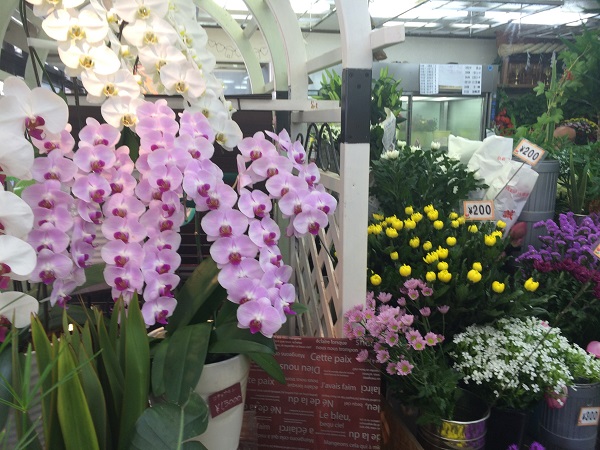
Otsuka Florist sells a wide range of flowers, plants and orchids, all at reasonable prices.
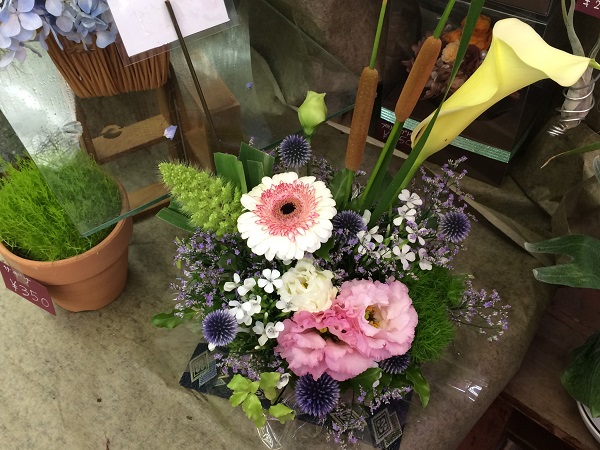
They also make bouquets, wreaths and flower arrangements for all occasions.
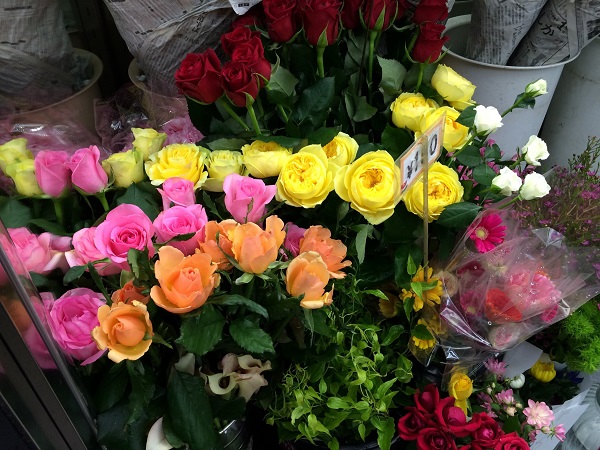
The cool azaleas and effulgent roses were particularly appealing. If you’re looking for something special or just want to brighten your home, then Florist Otsuka is the place for you: beautiful flowers and Fukagawa tradition all in one.
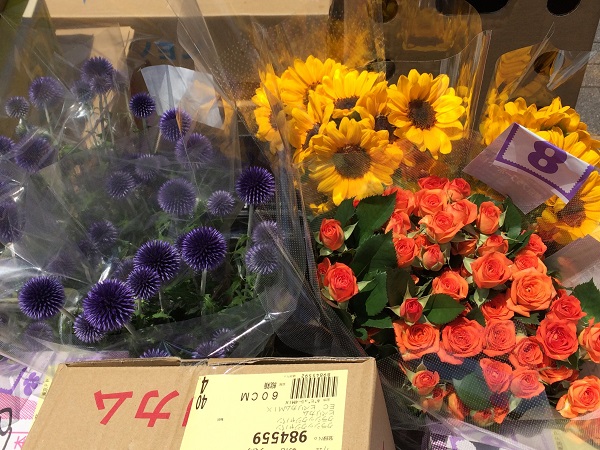
Story and Photos by Stephen Spencer

